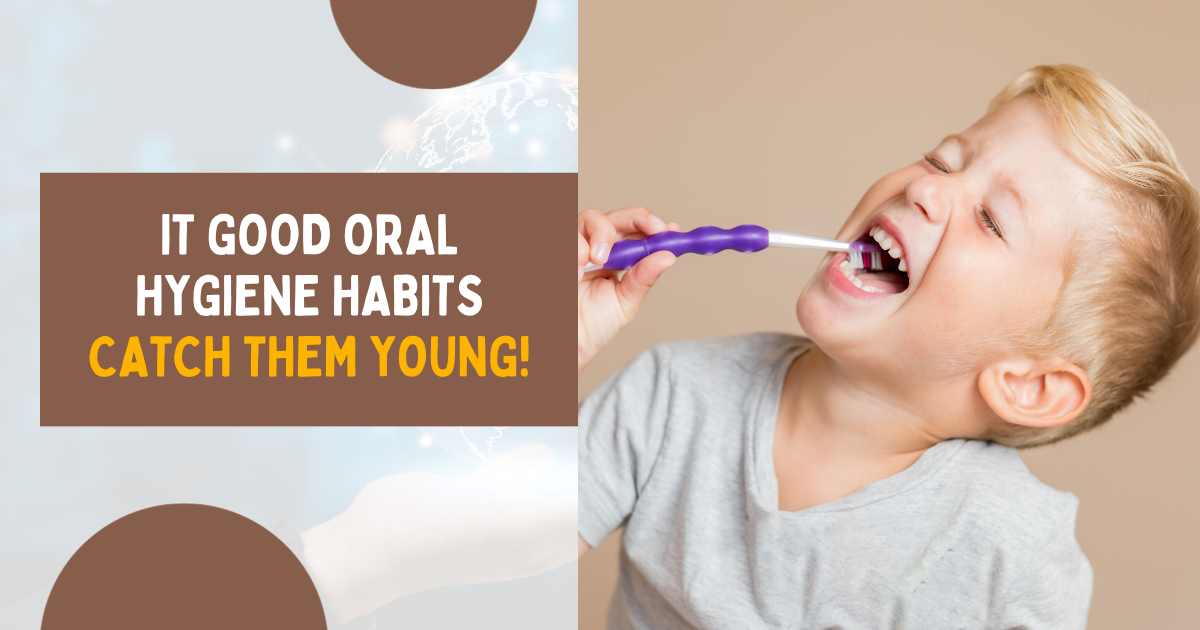Oral hygiene is more than just keeping your teeth clean; it’s about laying the groundwork for a lifetime of dental health. Starting excellent habits at a young age can make a huge difference in your child’s well-being. Here’s how to develop these habits:
The Early Years Are Crucial Starting Points
Begin Dental Care Early
– Schedule your child’s first dental appointment by their first birthday.
– Familiarize your child with the dental environment to reduce anxiety.
When it comes to brushing essentials for your child’s dental care, start by scrubbing their gums with a soft cloth even before their teeth appear. Switch to a small, soft-bristled toothbrush as soon as those tiny teeth show. A little smear of fluoride toothpaste is recommended for children under the age of three, while a pea-sized amount of toothpaste is recommended for children aged three to six. These techniques help to instill healthy dental hygiene practises in children from an early age.
Building Good Brushing Habits
Consistency is Key
– Encourage brushing at least twice a day.
– Create a routine: after breakfast and before bedtime.
– Make it fun: let them choose their toothbrush or play a two-minute song while brushing.
Supervision and Assistance
Children usually need help cleaning their teeth until they have the dexterity to tie their own shoes, which usually happens around the age of six. It’s critical to teach kids good brushing technique during this time, emphasising gentle circular motions for a complete clean that lasts at least two minutes. Furthermore, it is critical to ensure that kids spit out the toothpaste rather than ingesting it, teaching them this important part of dental hygiene from an early age.
Flossing Matters
Introduce Flossing Early
– Start flossing when two teeth touch.
– Show them how to use floss or floss picks gently.
– Supervise until they can do it independently.
Healthy Diet Choices
To promote dental health, it is critical to minimise sugar intake by avoiding sugary foods and drinks. Instead, choose healthier beverages such as water or milk on a regular basis, and save sweet delights for rare occasions. Encourage the consumption of nutrient-rich foods including fruits, vegetables, and dairy, as these can help to build healthy teeth. Conversely, starchy or sticky snacks should be avoided as they may have a negative impact on tooth health.
Regular Dental Check-ups
Set An Example
– Attend your dental check-ups regularly.
– Children often model their behavior after their parents.
Professional Cleanings
Regular cleanings and check-ups are important because they help prevent dental problems, and your dentist can discover and manage issues early on, ensuring that any possible concerns are addressed proactively for optimum oral health.
Addressing Dental Fears and Anxiety
When it comes to your child’s dental treatment, open communication is essential; talk to your child about dental checkups and address their worries honestly and reassuringly. Additionally, choosing a child-friendly dentist, one who is knowledgeable in pediatric treatment and maintains a kid-friendly environment, can make a great difference in ensuring your child has a happy dental experience.
By developing proper oral hygiene practices in your child at an early age, you are giving your child the gift of dental health for a lifetime. These practices not only prevent dental problems, but they also instill responsibility and discipline in children. So, begin early, maintain consistency, and make dental care a positive and routine part of your child’s life. Always remember that a healthy smile begins at home and lasts a lifetime!




